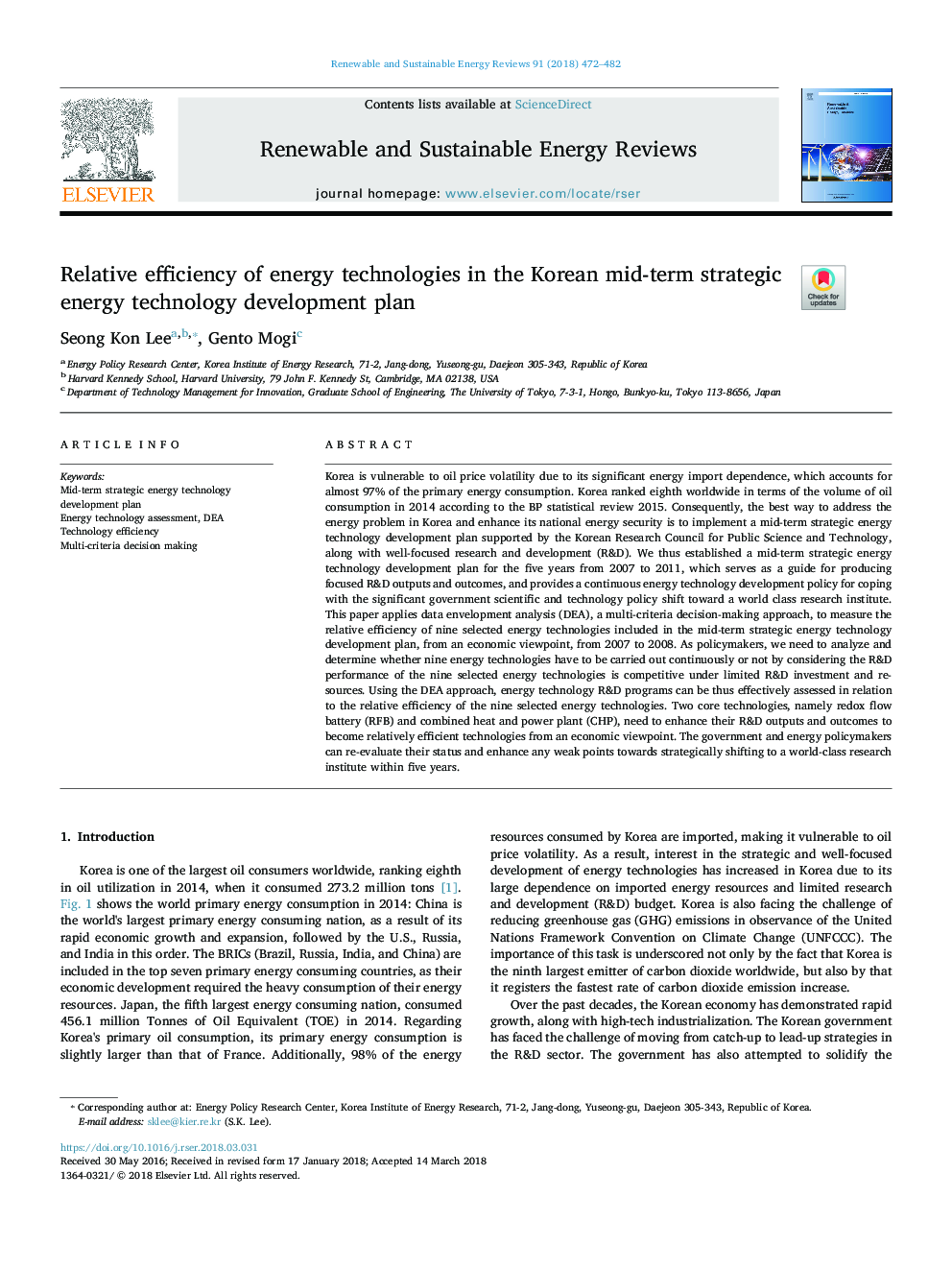| کد مقاله | کد نشریه | سال انتشار | مقاله انگلیسی | نسخه تمام متن |
|---|---|---|---|---|
| 8111112 | 1522293 | 2018 | 11 صفحه PDF | دانلود رایگان |
عنوان انگلیسی مقاله ISI
Relative efficiency of energy technologies in the Korean mid-term strategic energy technology development plan
ترجمه فارسی عنوان
بازده نسبی تکنولوژی های انرژی در برنامه توسعه تکنولوژی انرژی استراتژیک میان مدت کره ای
دانلود مقاله + سفارش ترجمه
دانلود مقاله ISI انگلیسی
رایگان برای ایرانیان
موضوعات مرتبط
مهندسی و علوم پایه
مهندسی انرژی
انرژی های تجدید پذیر، توسعه پایدار و محیط زیست
چکیده انگلیسی
Korea is vulnerable to oil price volatility due to its significant energy import dependence, which accounts for almost 97% of the primary energy consumption. Korea ranked eighth worldwide in terms of the volume of oil consumption in 2014 according to the BP statistical review 2015. Consequently, the best way to address the energy problem in Korea and enhance its national energy security is to implement a mid-term strategic energy technology development plan supported by the Korean Research Council for Public Science and Technology, along with well-focused research and development (R&D). We thus established a mid-term strategic energy technology development plan for the five years from 2007 to 2011, which serves as a guide for producing focused R&D outputs and outcomes, and provides a continuous energy technology development policy for coping with the significant government scientific and technology policy shift toward a world class research institute. This paper applies data envelopment analysis (DEA), a multi-criteria decision-making approach, to measure the relative efficiency of nine selected energy technologies included in the mid-term strategic energy technology development plan, from an economic viewpoint, from 2007 to 2008. As policymakers, we need to analyze and determine whether nine energy technologies have to be carried out continuously or not by considering the R&D performance of the nine selected energy technologies is competitive under limited R&D investment and resources. Using the DEA approach, energy technology R&D programs can be thus effectively assessed in relation to the relative efficiency of the nine selected energy technologies. Two core technologies, namely redox flow battery (RFB) and combined heat and power plant (CHP), need to enhance their R&D outputs and outcomes to become relatively efficient technologies from an economic viewpoint. The government and energy policymakers can re-evaluate their status and enhance any weak points towards strategically shifting to a world-class research institute within five years.
ناشر
Database: Elsevier - ScienceDirect (ساینس دایرکت)
Journal: Renewable and Sustainable Energy Reviews - Volume 91, August 2018, Pages 472-482
Journal: Renewable and Sustainable Energy Reviews - Volume 91, August 2018, Pages 472-482
نویسندگان
Seong Kon Lee, Gento Mogi,
